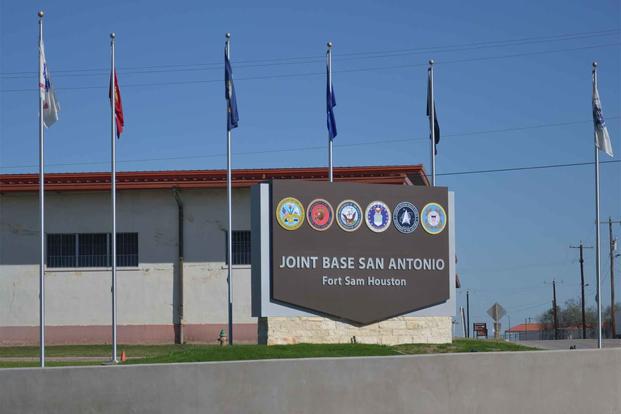Barracks that house service members undergoing medical treatment at a Texas military hospital lost heat during frigid temperatures throughout the region last week, Military.com learned.
Liberty Barracks, located on Joint Base San Antonio-Fort Sam Houston, serves troops who are being treated at Brooke Army Medical Center. The heating stopped Jan. 15 in several rooms, and was out for a week, exposing vulnerable patients to unseasonably cold temperatures.
"The cold snaps that hit much of Texas over the past week or so have strained the heating systems in a number of JBSA facilities, and some, including portions of Liberty Barracks, did lose heat," Rob Strain, a spokesman at the base, told Military.com in an emailed statement.
Read Next: Knocking Down 'Crappy' Barracks: Marine Enlisted Leader Says Housing Needs to Improve
The heating issue marks one of the latest quality-of-life issues for Liberty Barracks, which had to relocate building residents for nine months as the base worked to rid the plumbing of a pneumonia-causing bacteria called Legionella detected in 2022. It also comes as Congress prepares to question the service's top enlisted leaders later this month about quality of life for troops across the military.
Military.com received a tip this week that residents were reportedly using their stoves to keep their rooms warm in the absence of working heat. While Strain did not comment or verify that claim, he advised residents not to utilize appliances to heat their barracks.
"While I won't speak to any specific incidents, residents should never use a stove or cooktop as a heat source," Strain said, adding that only approved "space heating appliances should be used to supplement proper furnace systems."
Temperatures in San Antonio last week dipped as low as 18 degrees, according to the National Weather Service. Strain said heat was restored to Liberty Barracks on Monday. Other work orders for heating issues across the base are still being addressed, he added.
"The loss of heating or cooling in a barracks or other living quarters is considered to be an emergency work order, and our civil engineers are still working to restore heat to all affected facilities, giving priority to those emergency work orders," Strain said.
Liberty Barracks, a 216,000-square-foot facility capable of housing nearly 400 patients, opened in 2012, designed to provide a place to stay for wounded and injured service members while they receive treatment at the base's medical facilities.
But several issues with the plumbing have plagued the building in recent years.
In 2021 and, most recently, in 2022, Liberty Barracks worked to remove Legionella bacteria, which spreads through microscopic droplets of water that can be transmitted through drinking water, swimming pools and cooling towers in air conditioning systems, according to the Mayo Clinic. Coming into contact with the bacteria can lead to Legionnaires' disease, a severe type of pneumonia.
After detecting Legionella bacteria in 2022, 100 residents and 50 employees who worked in the building had to relocate across the installation as officials examined the situation. It took nine months, after rounds of cleaning and remediation efforts, for officials to fix the problem.
In June, the barracks were finally cleared to reopen.
The issues at Liberty Barracks also come on the heels of a nearly 100-page report in September from the Government Accountability Office that was filled with horrid examples of substandard living conditions in military housing, such as sewage issues that made entire buildings smell like methane, tap water with a brown tint, and insect infestations.
Pests such as bedbugs and cockroaches were a common issue at six of the bases that the GAO visited. Several bases had severe issues with security in the buildings, to the point that service members said that they were unable to lock their doors at night and squatters had moved in.
The plumbing problems and water considered unsafe to drink sparked a rebuke from Congress. Lawmakers quickly voiced frustration with the services over the conditions, Military.com reported.
Later this month, on Jan. 31, the senior enlisted leaders for each service branch, as well as the top noncommissioned officer in the military, will testify in front of Congress about quality-of-life issues.
Related: Patients Still Haven't Returned to Texas Medical Barracks Battling Legionella















